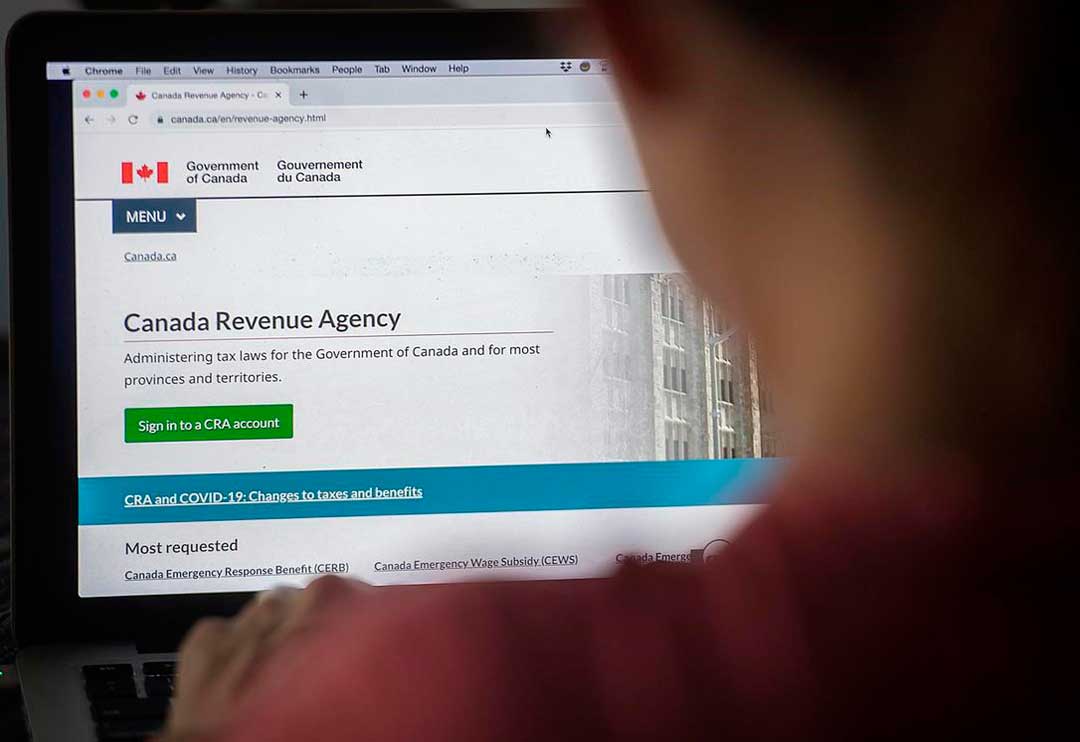
The Canada Revenue Agency has recently locked out 800,000 users from their online accounts, out of fear that people’s usernames and passwords have been hacked.
Citing the cybersecurity risk of having this information in the hands of potentially bad actors, obtained through email phishing schemes or third-party data breaches, the CRA says the move is precautionary.
“Like the accounts that were locked in February, these user IDs and passwords were not compromised as a result of a breach of CRA’s online systems, rather they may have been obtained by unauthorized third parties and through a variety of means by sources external to the CRA,” said the CRA in a statement.
“The total number of accounts impacted is roughly 800 thousand,” said the CRA.
The agency said that unlike what happened in February, it wanted to warn people ahead of time that the access to their accounts may be down, given its tax time.
If attempts are made to log in to a frozen account, the user will receive an error message informing them that their CRA user ID has been revoked.
Impacted individuals will be contacted by the email address associated with their accounts, or if there was not one on file, by mail.
Taxpayers can re-gain access to their CRA account by going to the CRA login page and creating a new CRA user ID and password or by using a different login method associated with their CRA account, the agency says.
It may take until March 22 for the issues to be resolved, but after that date, if users are unable to log in they should call the CRA.
As part of its ongoing monitoring the agency keeps an eye on any government-used usernames and passwords that go up for sale on the dark web and the CRA then moves to lock these accounts. This can happen when people use the same login information across multiple websites.
“All Canadians should monitor their CRA accounts for any suspicious activity including unsolicited changes to banking, mailing address or benefit applications made on their behalf. In addition, passwords should be updated regularly,” said the CRA.
Source: CTVNews
Newsletters
No Results Found
The page you requested could not be found. Try refining your search, or use the navigation above to locate the post.
Events & Sponsorship
No Results Found
The page you requested could not be found. Try refining your search, or use the navigation above to locate the post.
Articles & Publications
Keeping payroll on course during crisis
Staffing changes and government relief measures add to payroll management challenges during the pandemic Of the many business challenges that have emerged from the disruption of the COVID-19 crisis, the human resources implications have been some of the most difficult...
2 million Canadians who haven’t yet filed taxes could face benefits interruption
Even in the warped reality of the COVID-19 pandemic, Canadians must file their taxes to receive many of the benefits they’re entitled to. Around two million people could face interruptions to some federal and provincial payments if they wait too long to send in their...
CEWS Update – Federal Government redesigns CEWS for Period 5 and onwards
On July 17, 2020, the Government of Canada released details, as well as draft legislation, in respect of a redesigned Canada Emergency Wage Subsidy (CEWS) program effective from July 5, 2020. Pursuant to the backgrounder, the estimated total fiscal cost in 2020-21 for...
Canada Emergency Wage Subsidy (CEWS)
The Canada Emergency Wage Subsidy (CEWS) supports employers that are hardest hit by the pandemic, and protect the jobs Canadians depend on. The subsidy generally covers 75% of an employee's wages – up to $847 per week - for employers of all sizes and across all...
Canada Emergency Response Benefit
What is the Canada Emergency Response Benefit If you stopped working because of COVID-19, the Canada Emergency Response Benefit (CERB) may provide you with temporary income support. The CERB provides $500 a week for up to 16 weeks. How to apply We will start accepting...